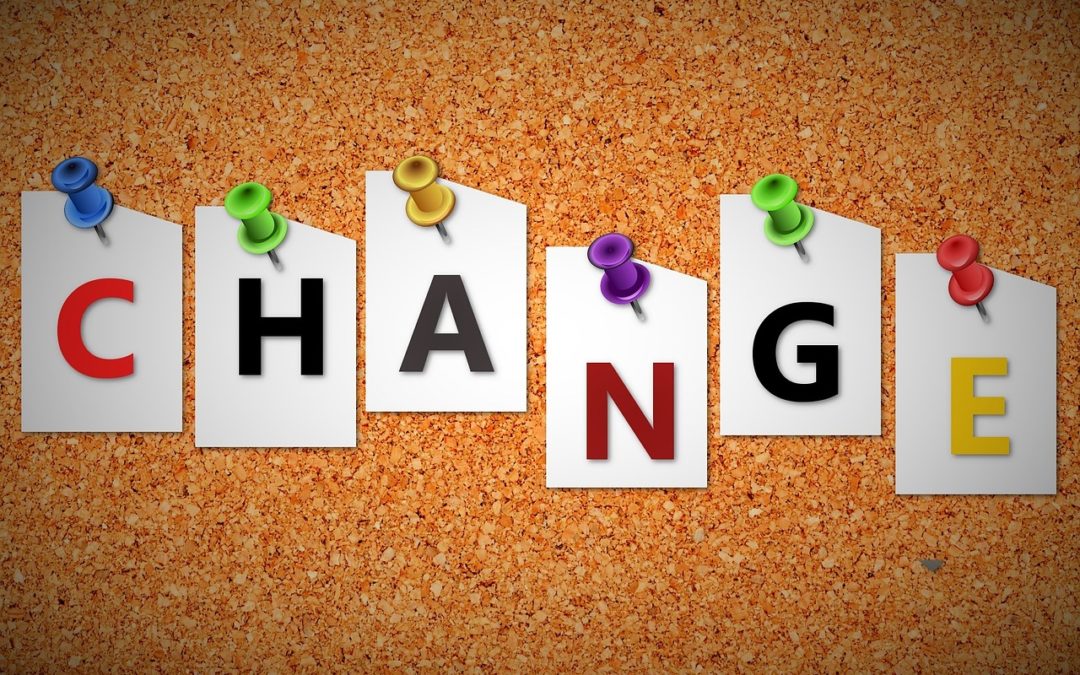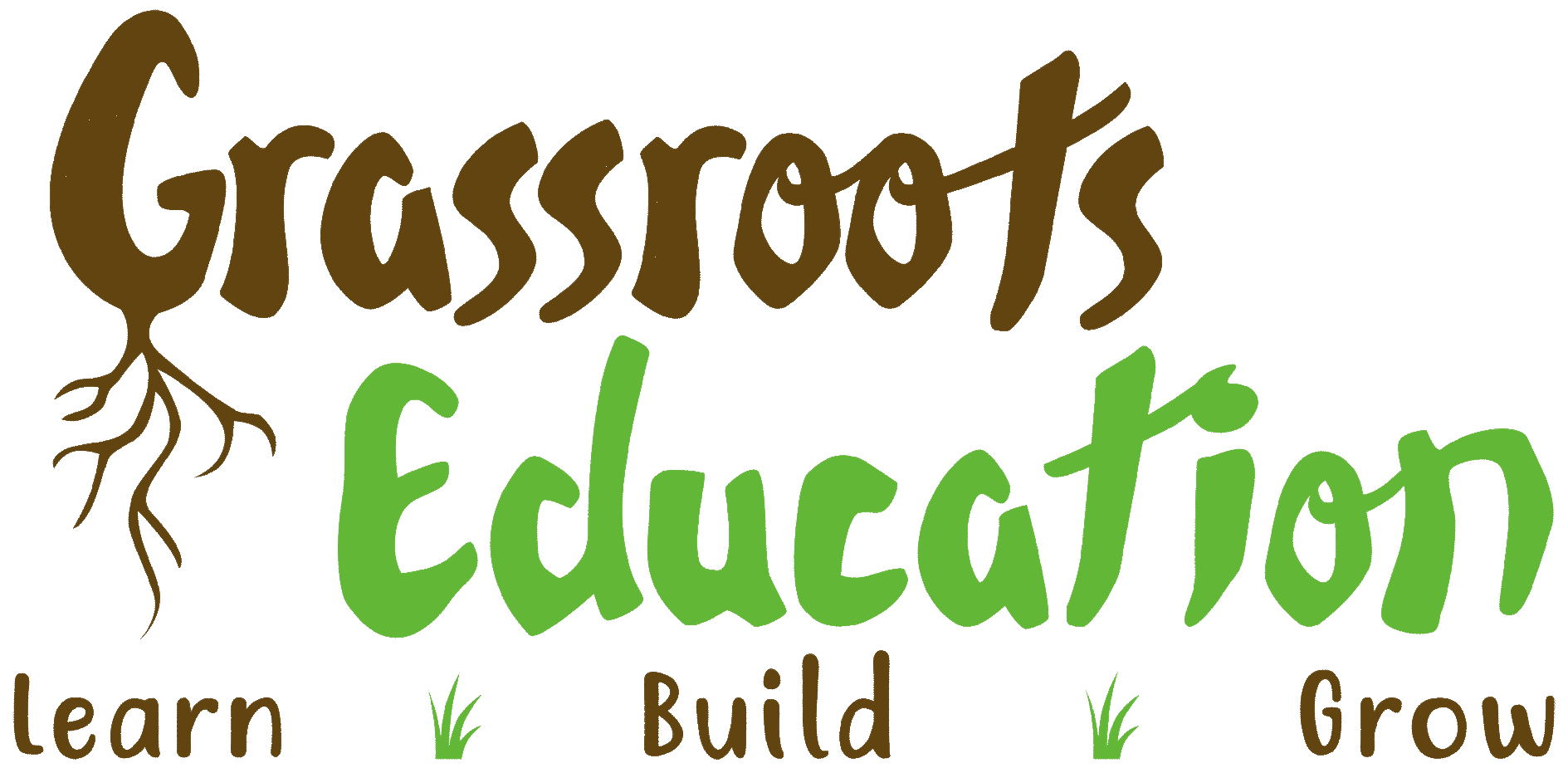
by Marcia Davis-Dawkins | Apr 18, 2019 | Education
Misunderstood

By Dr. Marcia Davis-Dawkins
Have you ever felt as if you are misunderstood and cannot get anyone on your side? How does that manifest itself? One thing I can tell you is that it is frustrating, especially when trying to prove one’s innocence. Being misunderstood can mean being incorrectly interpreted and it can be with anyone, anywhere, even with closest friends and relatives. Ultimately, that stings even more because one is trying to prove one’s self and get on good footing. Most times it is because of lack of communication. To put it another way, it can cut to the core and feel as if no one cares. There are times when being misunderstood hurts so badly that it feels like disrespect. Other times it’s a feeling of inadequacy and makes one wonder, “Why can’t I get things right?” Then there are moments when one senses that nothing is ever good enough, and deep down it feels likes one is always giving. “Why is my point of view not accepted?”
As always, I constantly wonder what my students are feeling. There might be times when I misunderstand them. Could it be that they had an issue at home that caused stress and or pain that in turn bought them to school in what seems like an apathetic way? Am I, as an educator, conscientious to look beyond the students’ outward appearance? Can I detect not what they appear to be, but truly grasp who and what they really are? Being misunderstood can be so hurtful that it may cause suicidal thoughts. The students might be thinking that if they are not around that no one would care and they won’t be missed. According to Maslow’s Hierarchy of Needs, there are five basic human needs, which drive behavior, and they consistently apply to school settings. As humans our basic physiological needs include the need to survive as individuals. We all want to feel wanted, accepted, and special. Being misunderstood can squash our self-confidence. I know that if I am misunderstood, I feel worthless. Do I make my students feel unworthy or my opinion of them diminish their worth? It’s interesting that if we as educators don’t consider our students’ feelings then the consequences can cause negative effects. Things that we seldom think about, including weight gain, possible eating disorder, sleeplessness, or reduction in the quality of work that the students produce can result. They might not be able to give of their best and we yell at them for not working to their maximum potential, but we don’t understand their underlying tribulations.
Being misunderstood can be very painful, and victims can fall into deep depression as the misunderstood may feel as if others are being judgmental and might lead to getting into unhealthy relationships, which could eventually cause more hurt. In the long run, there can be lack of trust and the persons hide their feelings and refrain from opening up to others.
Imagine going to a class or a school where English is the primary language, but it isn’t for the student – think for a moment of the fear that child faces, the challenges and the communication needs of those students. More than likely this student will be misunderstood primarily because of the language barrier. What can we as educators do? 
We often refer to fear as phobia and in this case, the fear is referred to as agoraphobia which encompasses being misunderstood and means simply a fear of leaving home, however, this is not quite accurate. Agoraphobia is a phobia of being in a situation where escape would be difficult or impossible, or help would be unavailable if a panic attack should occur. But could it be expanded further to include students who are fearful of being misunderstood, having anxiety attacks among other things and wanting to run away? I say there is a major possibility. I will quote from Lee Harper’s, To Kill A Mockingbird, “People generally see what they look for and hear what they listen for.” It’s also been said that there are some people who could hear you speak a thousand words and still not understand you, while there are others who will understand you without you even speaking a word. Aspire to be the latter, as being misunderstood is no joke!
Fear

by Marcia Davis-Dawkins | Mar 27, 2019 | Education
Empowerment
By Dr. Marcia Davis-Dawkins
Empowerment is “the process of becoming stronger and more confident, especially in controlling one’s life and claiming one’s rights.” It also encompasses authority or power given to someone to do something. Our role as educators definitely includes a deep sense of empowering our students. It means maximizing our students’ potential, as well as getting the best out of them and in doing so empowering ourselves.
I recently saw one of my students at a nail salon and after greeting me, she informed me that she was going to move to another state to pursue her graduate studies and eventually do her doctorate. I grinned with pride as she continued to say that I have been such an inspiration to her as a teacher that she wanted to follow in my footsteps!! Imagine my joy as I thought about my mantra of “if I can reach one student of the many that I have taught, then my work would have been  done.” What an honor it was to hear those words from her. Even though this student was a joy to have in class and it wasn’t challenging to teach her – it still made a difference that I made an impact in her life and I empowered her. This student was, and I imagine is still, respectful and hardworking. I am sure this student had days when she thought “I will never get through this!” But she stuck to it and continued (and will continue to stick with) tasks as she embarks onto other challenges.
done.” What an honor it was to hear those words from her. Even though this student was a joy to have in class and it wasn’t challenging to teach her – it still made a difference that I made an impact in her life and I empowered her. This student was, and I imagine is still, respectful and hardworking. I am sure this student had days when she thought “I will never get through this!” But she stuck to it and continued (and will continue to stick with) tasks as she embarks onto other challenges.
In general, I think that part of empowering someone includes helping the person to make the best of his/her time and assisting the person to keep on the goal at hand. This also includes staying focused and avoiding this that may distract or derail. Empower and teach students to be courageous and adventurous. They should be taught to persevere and put the pedal to the metal and move forward. It also entails picking up when you fall and understanding that sometime you have to get knocked down before you can stand taller than ever. They must accept that failure is an important aspect of growth and developing resilience and not fear it. In the classroom, teachers can empower students by incorporating lessons and activities that allow them to make decisions independently so they can gain knowledge about various role-playing. With the many hats that teachers wear, one of them also includes teaching students how to be empowered through decision-making, which is part of life’s lessons. In these lessons, there should be various tools, materials and school supplies available at the students’ disposable so they can experiment and work to improve their skills.
 In the classroom, the students should feel empowered when they are told they are smart and they can conquer any fears or climb any mountain (especially with the teacher’s support). They should not feel intimidated, but with respect be able to express their feelings or opinions. It is also the teacher’s role as a leader to empower students so they can gravitate towards the teacher, and, in essence, acquire leadership roles.
In the classroom, the students should feel empowered when they are told they are smart and they can conquer any fears or climb any mountain (especially with the teacher’s support). They should not feel intimidated, but with respect be able to express their feelings or opinions. It is also the teacher’s role as a leader to empower students so they can gravitate towards the teacher, and, in essence, acquire leadership roles.
Oh, when I think of the joy the teacher/student relationship can be when the student feels empowered as my former student feels! It is indeed an amazing feeling! So I lift my hat off to this particular student and all the other students who have been empowered by their teachers. The sky is the limit, my dear student. Continue to do your best – you are the epitome of the notion that we can shine even though we have problems or face issues, we can be empowered and succeed. As J. K. Rowling said, “Anything is possible if you’ve got enough nerve.”
I Can Do All Things

by Marcia Davis-Dawkins | Feb 22, 2019 | Education
Love for Everyone

By Dr. Marcia Davis-Dawkins
In a world of turmoil and upheaval it seems difficult to talk about love since most people are so mean to each other through words and deeds. People are hurting. People are sad, frustrated and discouraged. It hardly seems possible for there to be Valentine’s Day. The word “love” can be misused and misunderstood. Love is on my mind simply because we celebrated Valentine’s season a few weeks ago and since it is so commercialized I can’t help but think of it. With the constant ads,  it appears as if it is simply lip service.
it appears as if it is simply lip service.
We also recently celebrated Civil Right’s leader Dr. Martin Luther King Jr.’s birthday and one of his primary objectives was to get more equal treatment for all Americans, not just white Americans. Which in essence, was to show love for everyone. All we need is love of life and self. Lack of love is also one of the reasons students bully each other in the classroom. Students find it easy to give evil for evil instead of responding with kindness even when someone gets under their skin. Yes, that is so difficult to do, as our inner selves are weak and we want to lash back. We must understand that people who are usually mean and nasty have dark, deep wounds in their lives. Love is mentioned several times in the Bible, as in Matthew 22:35-39 “You shall love your neighbor as yourself.”
Love is necessary for the students, especially when we are trying to be sensitive to the students’ needs – the things we say, how we say it, when we say it or in front of a class or group of people. According to Julia G. Thompson, in an article titled How to Show Your Students That You Care About Them, Thompson suggests how to show love in the classroom. The following are some of her suggestions: –
- Set responsible behavior limits for everyone, and be fair when you enforce these limits.
- Use a kind voice when you speak with your students.
- Listen to all of your students. Encourage them to share ideas and opinions.
- If one of your students is in the newspaper for something positive, clip out the article and display it.
- Stress the things that you and your students have in common: goals, dreams, and beliefs.
- When a student speaks to you, stop and listen.
- Respond to emails from your students promptly and courteously.
- When you display student work, don’t just display the best. Display everyone’s work.
- Make it very clear to your students that you want to help them achieve their dreams.
- Ask about a student’s family. If you know someone is ill, show your concern.
- Show your sense of humor. Laugh when funny things happen in class—especially when they happen to you.
- Speak to every student each day. Leave no one out of class discussions.
- Write notes to your students. Use plenty of stickers, and write positive comments on their papers.
- Make a positive phone call home when a student’s effort is paying off.
- Pay attention to your students’ health. If students need to go to the nurse, send them. When students have to miss several days because of illness, call to see how they are doing, or send a get-well card. Be prompt in sending work to the student’s home

- Use this sentence to convey your concern: “What can I do to help you?”
- Talk with students when you notice a change in their behavior. For example, if a normally serious student is neglecting his or her work, find out why.
- Take the time to tell your students what you like about them.
As educators, we can change the atmosphere in a classroom to a world of love and kindness. Rumi once said that, “Love is the bridge between you and everything.” Frankly speaking, I believe that some of our students don’t get love at home, so they might be seeking love from our classroom. “Let’s show love!



Work Cited
Thompson, Julia G. (2019). Teaching Monster, http://teaching.monster.com/benefits/articles/10210-how-to-show-your-students-that-you-care-about-them
The Hurt Child

by Marcia Davis-Dawkins | Feb 5, 2019 | Education, Kids, Parents, Teachers, Teens
Loneliness and Mental Wellness

 By Dr. Marcia Davis-Dawkins
By Dr. Marcia Davis-Dawkins
Have you ever felt alone? It is often said that we can be in a crowd, but still feel alone. Some skeptics might even ask, “How is that possible?” But truth be told, it is possible for people to feel left out in a crowd or even in the classroom. Take for instance the student who is new to an area or a school and because he/she has no friends in the environment then, he/she feels as if he/she doesn’t belong. There is also the case where the student has had some emotional issues in the family, now he/she feels isolated because there are hidden pains in the student’s life.
“Why doesn’t anyone want me?
At times, there are students who might have been abandoned by their parents so the students definitely feel unwanted and unloved. Their first thoughts might be, “Why doesn’t anyone want me?” or “Why me?” This type of loneliness might even lead to students inflicting pain on themselves or even lashing out at their fellow classmates. They might be verbally abusive to those around them in an attempt to mask their lonely feelings. Still another example, students might feel alone when going through puberty and are trying to figure out themselves, as sometimes is the case for students who are in the middle school (ages 11-14).
For adults, being lonely or being alone can be a time of reflection where one can take stock of where they are coming from, where they are now and where they plan on being for the future. Plus, for those who are religious, it can be a time of meditation with God – He usually reveals Himself to the meditator and gives plenty of understanding to life. Reflection can lead to understanding of oneself, so that there is no room for depression or anxiety. But, like most things, there should be balance where you should not dwell too much on the negatives in the past but learn from the past and use with moderation. It might be a time to ask not why is this happening to me , but rather, what is this teaching me?
In the long run, what we don’t want is to mask our feelings or hide our identity because of being hurt. Find someone you can confine in or use alone time to read a book or write your thoughts so you are not consumed with them. It is important to be yourself and not compare yourself with another person, thinking you are not smart enough, you are not beautiful/handsome enough, not rich enough, not outgoing enough. There are people who feel like they are so insufficient and aren’t satisfied with who they are.
Loneliness for Adults
 Also for adults, loneliness can come because of a lost spouse or loved one and things seems like your world in about to end because the person is grieving. For some, it can be a sense of confusion. Some might question themselves, even question God, or “Why did this happen?” “How will I survive without my spouse?” “Where do I stand?” “What will I do in the weeks, months, years to come without my spouse?” These, of course, are legitimate inquiries without immediate answers, but the interesting thing is that there is usually help, whether through family/friends support or from counselors. Whatever the situation, fear of being alone or the feeling that we will never make it – there is always hope.
Also for adults, loneliness can come because of a lost spouse or loved one and things seems like your world in about to end because the person is grieving. For some, it can be a sense of confusion. Some might question themselves, even question God, or “Why did this happen?” “How will I survive without my spouse?” “Where do I stand?” “What will I do in the weeks, months, years to come without my spouse?” These, of course, are legitimate inquiries without immediate answers, but the interesting thing is that there is usually help, whether through family/friends support or from counselors. Whatever the situation, fear of being alone or the feeling that we will never make it – there is always hope.
 We might be lonely simply because people have disappointed us so much that we just want to be by ourselves and enjoy our own company. At times, we go through a period of loneliness because this time is needed for reflecting where we can assess ourselves and set new goals. Frankly speaking, we shouldn’t fight this aloneness, but embrace it and develop something that you might never have. It could be a time where we can get to know ourselves. At whatever cost and at whatever stage in life we are, loneliness is real and it affects our psyche. Whether we want to admit it or not, it can play a big part of our lives (young or old). It is no wonder why what Maya Angelou said is so poignant, “Music was my refuge. I could crawl into the space between the notes and curl my back to loneliness.” What is vital to remember and remind our struggling students is that if you’ve ever had feelings of loneliness, you are far from alone. Loneliness is one of the most common, if unpleasant, emotions that millions of people experience. For some it is passing, for others, it is recurring. But for all of us, it is a part of the human experience.
We might be lonely simply because people have disappointed us so much that we just want to be by ourselves and enjoy our own company. At times, we go through a period of loneliness because this time is needed for reflecting where we can assess ourselves and set new goals. Frankly speaking, we shouldn’t fight this aloneness, but embrace it and develop something that you might never have. It could be a time where we can get to know ourselves. At whatever cost and at whatever stage in life we are, loneliness is real and it affects our psyche. Whether we want to admit it or not, it can play a big part of our lives (young or old). It is no wonder why what Maya Angelou said is so poignant, “Music was my refuge. I could crawl into the space between the notes and curl my back to loneliness.” What is vital to remember and remind our struggling students is that if you’ve ever had feelings of loneliness, you are far from alone. Loneliness is one of the most common, if unpleasant, emotions that millions of people experience. For some it is passing, for others, it is recurring. But for all of us, it is a part of the human experience.
Emotions/Feeling

by Marcia Davis-Dawkins | Jan 23, 2019 | Education, Kids, Parents, Teachers
Embracing Change

By Dr. Marcia Davis-Dawkins
In one of my recent blogs, “Change Our Positions”, I wrote about change and it seems as if I am revisiting because as we evolve we need to have change. Change can sometimes be difficult for most people. What then is the meaning of change? Change as defined by the dictionary, is “to make or become different.”
Change for some means moving forward and forgetting things that are behind. For many, the change of a new year means making a resolution to do better in life – whether it’s losing weight, changing your way of eating or simply doing things differently primarily to make life better. When for instance, there is a divorce, there is also change and a new way of life for both persons involved. At times it can also mean change in location for one or both parties. If there are children involved, they have to deal with change of being in a single parenting home or moving to another school.
For the most part, change is usually not easy, but the idea is to pick up the pieces and start over, but don’t dwell on the past or what could have been. Change can mean trying new things, as well as growth, because you are learning new things and setting new goals and aspirations. Change means switching from one thing to another, but it also means that you find out about yourself with regards to what you can tolerate and in turn grow through the learning.
Fear
There are many people who fear change because they are comfortable with what they are doing or at the level they are. This lack of movement towards change can hinder progress to move forward. Since we always seek to evolve and grow higher, change is a necessary force that we must encounter. Many times the change may cause us to come to a roadblock, but we have to find ways to get over or around the obstacles so we can be elevated. And if and when we pass the roadblock, we gain strength. Just imagine the joy when we realize that we surpass the trials and tribulations and how satisfying to know that we did it! This definitely is a booster to our self-confidence and now we can believe more in ourselves. This sudden rush of joy could also encourage us to want to climb higher and higher. There is a little song that we use to sing as youngsters that said, “It only takes a spark, to get the fire going and soon all those around could warm up in it’s glowing.” This joy will become contagious because we want to spread it all around. This positive vibe will keep on going and soon there will be no stopping the elevation, as we won’t want to stop learning. Change definitely means learning new lessons and discovering things about us. Some of us make changes is our lives with the belief that like the old adage says, “flowers tomorrow are in seeds planted today.”
What role does change play in education?
Like so many other things, change is necessary for growth. Students are going to need skills in their future beyond the academic achievement goals that have been the focus of the past. To help them prepare for that future, they must become adaptable learners. That means that change is not only necessary, but inevitable. Change WILL happen, so why not embrace it? Teachers are sometimes resistant to do that because often they view change as being done solely for the sake of change. Unfortunately, sometimes that is the truth. Veteran teachers have seen changes initiated only to be abandoned because they did not prove fruitful. But “meaningful change” goes beyond that, leads to something better and should be welcomed
 Letting go of what we find most familiar and comfortable is difficult, but stepping out of that comfort zone enables the potential for fulfillment and reward. Innovation and change will only be successful if we believe there just might be a better way. So, focus energy not on fighting for the old, but on building the new. Our students cannot become who they want to be by remaining what they are.
Letting go of what we find most familiar and comfortable is difficult, but stepping out of that comfort zone enables the potential for fulfillment and reward. Innovation and change will only be successful if we believe there just might be a better way. So, focus energy not on fighting for the old, but on building the new. Our students cannot become who they want to be by remaining what they are.
Change Our Positions!

by Marcia Davis-Dawkins | Jan 8, 2019 | Education, Kids, Parents, Teachers
Can We Forget Where We Come From?

By Dr. Marcia Davis-Dawkins
I was recently privileged to be a part of our family reunion where we went back to our roots where our maternal parents and grandparents lived. It was really different because there was no running water. However we got water from the nearby spring. Being there was very nostalgic since I lived there at one part of my primary years. During my quiet times, I wondered how we survived without some of the basic things in life – running water or electricity. Vivid memories flooded my mind including having to go to the spring to get water to do many essential things that many may take for granted today. I thought of going to the river to wash clothes and at times bathing. As a farmer, my grandfather would plant various crops like sugar cane, oranges, coconuts, coco, coffee, ginger, yams of varying names and textures. I was fortunate to witness the planting as well as the harvesting of these crops. Some of the crops were cash crops while others were for our consumption. There were also livestock, including chickens, cows, goats and pigs. My grandfather at times would slaughter various livestock and sell to the neighbors in the community.
There are many people who would not like to remember where their origins are because the memories are so painful and they would prefer to bury them. Quite frankly, I understand their reasoning, but for me they’re my roots and the experiences helped and molded me into who I am today. And I would not say that life was great and stress-free. I am sure that they are people who would say that they are now glad they are out of the situation that they grew up in and would not want to go back now that they are successful. They might be irritated they had to experience the poverty and dare I say, the humble beginnings. Some of the memories are so cemented into my mind that I can’t forget them whether good or bad. I am truly convinced that they made me stronger and weren’t meant to demean my humble beginnings. I guess when I was sent to spend time with my grandfather, during my primary years to teenage years, I didn’t think those were wonderful years. But now that I am older, I have learned to appreciate those foundational years. I know that my grandfather was a vital and invaluable part of my upbringing. As such, I have learned to never forget where I came from, but never to let it hold me back from where I want to go.
 Some of us (including some family members) have sought ways to remove or refrain from remembering the struggle of their childhood days – especially if they see them as too painful or violent for that matter. I can’t say I blame them but can say, “different strokes for different folks”. Still there are others who might associate their childhood days as confusing, lonesome, or filled with rejection and they prefer to escape from or drown those memories.
Some of us (including some family members) have sought ways to remove or refrain from remembering the struggle of their childhood days – especially if they see them as too painful or violent for that matter. I can’t say I blame them but can say, “different strokes for different folks”. Still there are others who might associate their childhood days as confusing, lonesome, or filled with rejection and they prefer to escape from or drown those memories.
Somehow as an educator, I have been thinking of how the students would eventually think about the impact that I have made on my students’ lives. It is my hope that they will never forget me as a motivator and that I played a vital and invaluable part in their lives. I really would like them to feel that even though the lessons and experiences were sometimes difficult they will help to make them who they will be in the future. I have often thought that through lessons I can share part of my early childhood stories (where appropriate) so students can identify with me and feel that they are not alone.
Since the teacher wears many hats and one of them is that of providing a home (in the classroom) for students, then the hat includes making the classroom a home where the heart is. No matter what one accomplishes, one must never forget how one began. That enables one to have enough confidence to hold his/her head up high, but also enough humility not to look down at others. As Ralph Waldo Emerson stated, “A great man is always willing to be little.”
Education and Success






 done.” What an honor it was to hear those words from her. Even though this student was a joy to have in class and it wasn’t challenging to teach her – it still made a difference that I made an impact in her life and I empowered her. This student was, and I imagine is still, respectful and hardworking. I am sure this student had days when she thought “I will never get through this!” But she stuck to it and continued (and will continue to stick with) tasks as she embarks onto other challenges.
done.” What an honor it was to hear those words from her. Even though this student was a joy to have in class and it wasn’t challenging to teach her – it still made a difference that I made an impact in her life and I empowered her. This student was, and I imagine is still, respectful and hardworking. I am sure this student had days when she thought “I will never get through this!” But she stuck to it and continued (and will continue to stick with) tasks as she embarks onto other challenges. In the classroom, the students should feel empowered when they are told they are smart and they can conquer any fears or climb any mountain (especially with the teacher’s support). They should not feel intimidated, but with respect be able to express their feelings or opinions. It is also the teacher’s role as a leader to empower students so they can gravitate towards the teacher, and, in essence, acquire leadership roles.
In the classroom, the students should feel empowered when they are told they are smart and they can conquer any fears or climb any mountain (especially with the teacher’s support). They should not feel intimidated, but with respect be able to express their feelings or opinions. It is also the teacher’s role as a leader to empower students so they can gravitate towards the teacher, and, in essence, acquire leadership roles.
 it appears as if it is simply lip service.
it appears as if it is simply lip service.





 By Dr. Marcia Davis-Dawkins
By Dr. Marcia Davis-Dawkins Also for adults, loneliness can come because of a lost spouse or loved one and things seems like your world in about to end because the person is grieving. For some, it can be a sense of confusion. Some might question themselves, even question God, or “Why did this happen?” “How will I survive without my spouse?” “Where do I stand?” “What will I do in the weeks, months, years to come without my spouse?” These, of course, are legitimate inquiries without immediate answers, but the interesting thing is that there is usually help, whether through family/friends support or from counselors. Whatever the situation, fear of being alone or the feeling that we will never make it – there is always hope.
Also for adults, loneliness can come because of a lost spouse or loved one and things seems like your world in about to end because the person is grieving. For some, it can be a sense of confusion. Some might question themselves, even question God, or “Why did this happen?” “How will I survive without my spouse?” “Where do I stand?” “What will I do in the weeks, months, years to come without my spouse?” These, of course, are legitimate inquiries without immediate answers, but the interesting thing is that there is usually help, whether through family/friends support or from counselors. Whatever the situation, fear of being alone or the feeling that we will never make it – there is always hope. We might be lonely simply because people have disappointed us so much that we just want to be by ourselves and enjoy our own company. At times, we go through a period of loneliness because this time is needed for reflecting where we can assess ourselves and set new goals. Frankly speaking, we shouldn’t fight this aloneness, but embrace it and develop something that you might never have. It could be a time where we can get to know ourselves. At whatever cost and at whatever stage in life we are, loneliness is real and it affects our psyche. Whether we want to admit it or not, it can play a big part of our lives (young or old). It is no wonder why what
We might be lonely simply because people have disappointed us so much that we just want to be by ourselves and enjoy our own company. At times, we go through a period of loneliness because this time is needed for reflecting where we can assess ourselves and set new goals. Frankly speaking, we shouldn’t fight this aloneness, but embrace it and develop something that you might never have. It could be a time where we can get to know ourselves. At whatever cost and at whatever stage in life we are, loneliness is real and it affects our psyche. Whether we want to admit it or not, it can play a big part of our lives (young or old). It is no wonder why what 

 Letting go of what we find most familiar and comfortable is difficult, but stepping out of that
Letting go of what we find most familiar and comfortable is difficult, but stepping out of that 

 Some of us (including some family members) have sought ways to remove or refrain from remembering the struggle of their childhood days – especially if they see them as too painful or violent for that matter. I can’t say I blame them but can say, “different strokes for different folks”. Still there are others who might associate their childhood days as confusing, lonesome, or filled with rejection and they prefer to escape from or drown those memories.
Some of us (including some family members) have sought ways to remove or refrain from remembering the struggle of their childhood days – especially if they see them as too painful or violent for that matter. I can’t say I blame them but can say, “different strokes for different folks”. Still there are others who might associate their childhood days as confusing, lonesome, or filled with rejection and they prefer to escape from or drown those memories.